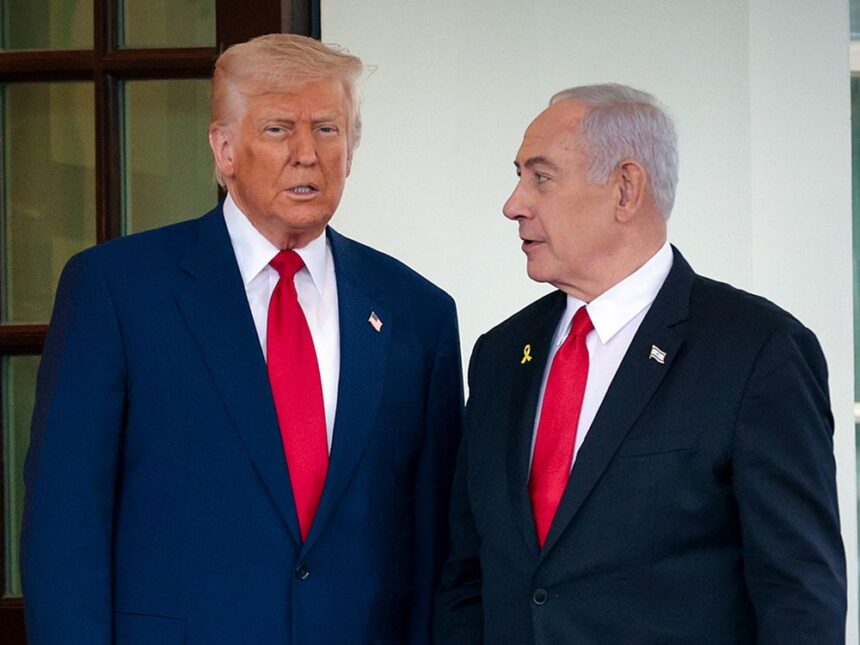In a significant development amid the ongoing Middle East crisis, former President Donald Trump has unveiled an ambitious 21-point peace proposal aimed at resolving the Israel-Hamas conflict that has devastated Gaza since October 7. The plan, released through his campaign on Thursday, represents one of the most detailed foreign policy initiatives of his 2024 presidential bid and marks a stark contrast to the Biden administration’s approach to the increasingly complex regional tensions.
“The bloodshed must end, hostages must be released, and terrorist organizations must be dismantled,” Trump declared in a video accompanying the proposal. His plan envisions a post-conflict Gaza governed by local Palestinians rather than Hamas, with substantial financial support from neighboring Arab nations for reconstruction efforts.
The comprehensive proposal comes at a critical moment when cease-fire negotiations have repeatedly stalled despite international mediation efforts. According to CO24 World News analysis, Trump’s initiative appears designed to position him as a decisive dealmaker capable of resolving international crises where current diplomatic channels have faltered.
Central to Trump’s plan is the complete dismantling of Hamas and Islamic Jihad, coupled with the immediate release of all hostages held in Gaza. The proposal further advocates for a security buffer zone within Gaza, controlled by Israel, alongside demilitarization of the territory. Perhaps most controversially, it explicitly rejects Palestinian statehood as a prerequisite for peace—a position that aligns with Israeli Prime Minister Benjamin Netanyahu’s stance but contradicts long-standing international frameworks.
Financial elements of the proposal include the creation of a “Marshall Plan for Gaza” funded primarily by regional Arab states rather than American taxpayers. This approach reflects Trump’s consistent emphasis on reducing U.S. financial commitments abroad while encouraging greater regional responsibility, a cornerstone of his foreign policy during his previous administration.
Middle East experts interviewed by CO24 Politics offered mixed assessments. Dr. Samira Hassan, professor of international relations at the University of Toronto, noted, “While ambitious in scope, the plan fundamentally ignores Palestinian political aspirations that have been central to any sustainable peace framework. Without addressing the statehood question, it’s difficult to see how this gains traction among Palestinians.”
The timing of Trump’s announcement is particularly noteworthy as it coincides with heightened tensions between the Biden administration and Israel over military operations in Rafah. President Biden recently paused a shipment of heavy bombs to Israel, signaling growing friction between the allies. Trump’s plan, by contrast, emphasizes “unwavering support” for Israel’s security operations, highlighting the policy divergence between the former president and the current administration.
Regional responses have been predictably divided. Israeli officials, speaking on condition of anonymity to CO24 News, cautiously welcomed elements of the plan while Palestinian Authority representatives immediately rejected the proposal’s dismissal of statehood aspirations.
Economic implications of Trump’s approach could be substantial, according to financial analysts tracking Middle East investment patterns. “A coordinated reconstruction effort funded by Gulf states could potentially transform Gaza’s economy,” explains Michael Roberts, senior economic analyst at Toronto-based Global Investment Partners. “However, the political prerequisites Trump has outlined make implementation highly uncertain in the current climate.” CO24 Business reports that regional markets showed little immediate reaction to the announcement, suggesting investor skepticism about near-term implementation prospects.
The plan’s reception in Washington reflects America’s polarized political landscape. Republican lawmakers quickly praised the initiative as “bold and decisive,” while Democratic representatives criticized it as “unrealistic and one-sided.” This partisan divide mirrors broader foreign policy disagreements that will likely feature prominently in the upcoming presidential election.
As casualties continue to mount in Gaza, with the health ministry reporting over 35,000 Palestinian deaths since October, and Israel still working to secure the release of approximately 100 hostages, the urgency for a viable peace framework grows daily. The question remains: can any proposal bridge the profound divides between the parties, or are we witnessing merely another chapter in the long history of well-intentioned but ultimately unsuccessful peace initiatives in this troubled region?











